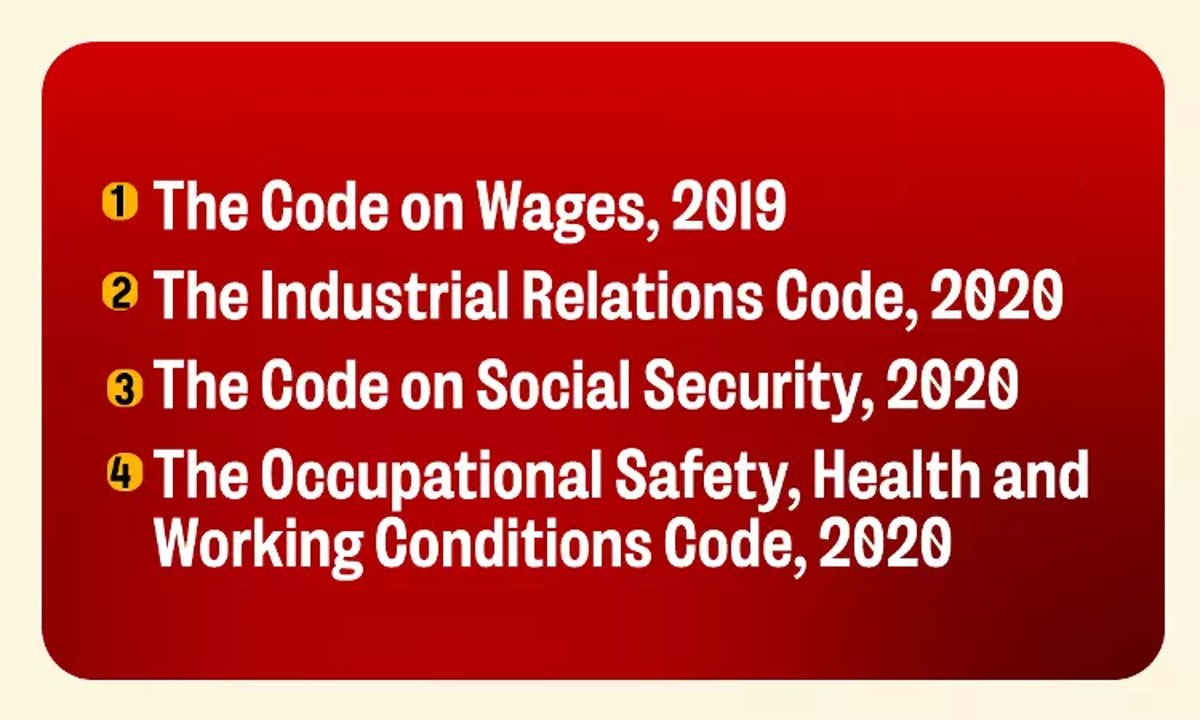NEW DELHI: The new labour laws came into force on Friday, marking what is being described as the most significant overhaul in the history of the country’s labour legislation. The four consolidated labour codes, on wages, social security, occupational safety and industrial relations, were formally implemented after years of policy work, signalling a major shift in the country’s regulatory framework for workers and employers.
The change follows an official notification issued on Friday, with the Union Government stating that the codes aim to guarantee minimum wages, expand social security, provide equal opportunities for women and offer legal recognition to gig and unorganised workers. The implementation marks the fulfilment of a key national reform driven under the leadership of Prime Minister Narendra Modi.
Union Home and Cooperation Minister Amit Shah said the rollout represented a landmark moment for millions of workers across the country. “These codes are the biggest reform in the history of labour law,” he posted. He added that the new laws will “improve the lives of workers by ensuring minimum wages, social security, equal opportunities for women and legal identity for gig and unorganised workers”.
 Officials explained that the four codes merge 29 earlier labour laws into a simplified structure designed to make compliance easier while ensuring worker protection. A senior Labour Ministry official said the reform sends a clear message that “the worker stands at the centre of policy”.
Officials explained that the four codes merge 29 earlier labour laws into a simplified structure designed to make compliance easier while ensuring worker protection. A senior Labour Ministry official said the reform sends a clear message that “the worker stands at the centre of policy”.
Key reforms under the new regime
Under the Code on Wages, states must revise minimum wages at regular intervals and ensure uniformity across skills and sectors. The Social Security Code expands benefits such as pension, health cover, maternity benefits and unemployment support to informal-sector and platform workers. The Occupational Safety and Health Code will mandate stronger safety standards across factories, mines and hazardous industries. The Industrial Relations Code updates rules for trade unions, collective bargaining, dispute resolution and workplace discipline.
Women workers are a central focus of the new framework. The government has stated that the codes guarantee equal wages, improve maternity protections and support safer workplaces. Labour-rights researcher Radhika Menon said the reform “acknowledges women as a vital part of the workforce and extends long-overdue protections”.
For the first time in India, gig workers and platform-based professionals — such as delivery agents, app-based service providers and digital freelancers — have been given legal identity. They will be eligible for targeted social-security schemes. A trade-union representative said the step “brings legitimacy to millions who had previously worked outside formal structures”.
Industry reaction and concerns
Industry associations welcomed the clarity and uniformity of the codes, noting that they simplify compliance. Rahul Mitra, spokesperson for an industry chamber, said that while the consolidation is welcome, “effective implementation and transparent enforcement will determine success”.
Economists noted that the reform aligns Indian labour standards with evolving global benchmarks at a time when the workforce is undergoing structural changes. Analyst Sonia Arora said the simplified framework “supports both competitiveness and worker welfare, making India better positioned for manufacturing expansion”.
Implementation roadmap
The Labour Ministry said implementation would occur through a phased approach, supported by digital compliance systems and a national worker-database. A dedicated enforcement division will coordinate with state labour departments. Weekly monitoring dashboards will track registrations, wage-revisions and benefit disbursements.
Workers’ organisations called the reform overdue but transformative. Sangeeta Tiwari of the Independent Workers’ Federation said the codes “finally give dignity and protection to workers who never had legal coverage”.
Looking ahead
The government said the reform supports its long-term economic vision. By strengthening the rights of workers while simplifying processes for employers, officials believe the codes will improve formalisation and productivity across sectors.
As the new laws take effect nationwide, both central and state agencies will review compliance and provide continuous support to workers and employers. Officials reiterated that the aim is “inclusive growth where no worker is left behind”.



















